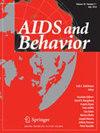Spillover Effects of an Agricultural Livelihood Intervention Among People Living with HIV on Community Empowerment in Kenya
Abstract
Food insecurity and HIV are closely intertwined and together have compounded effects on morbidity and mortality. Additionally, food insecurity and HIV have combined effects on weakening communities, including causing decreased economic capacity, decreased ability of families to care for children, and intergenerational transfer of poverty. Livelihood interventions that improve food security are promising approaches for improving the quality of life of people living with HIV, and they may also have profound effects on the strength and stability of communities. We conducted a cluster randomized controlled trial of a multisectoral agricultural livelihood intervention called Shamba Maisha among people living with HIV in rural Kenya (NCT02815579). We conducted this qualitative sub-study at the end of the intervention to examine participant perspectives on the community-level effects of the intervention. We found that the achievement of food security led to participants taking on new roles as leaders and teachers in the community. Participants also described being newly able to provide employment to other community members, promote women’s economic empowerment, and improve community-wide food security. Additionally, participants who previously relied on others for help reported giving food and resources to those who were more impoverished, as well as funding the school fees of their own children and the children of others. There were some gender differences in the new roles and community-level impacts that participants were reportedly able to take on. Overall, our study demonstrated that improvement of food security for individuals may have profound ripple effects on surrounding communities.

 求助内容:
求助内容: 应助结果提醒方式:
应助结果提醒方式:


